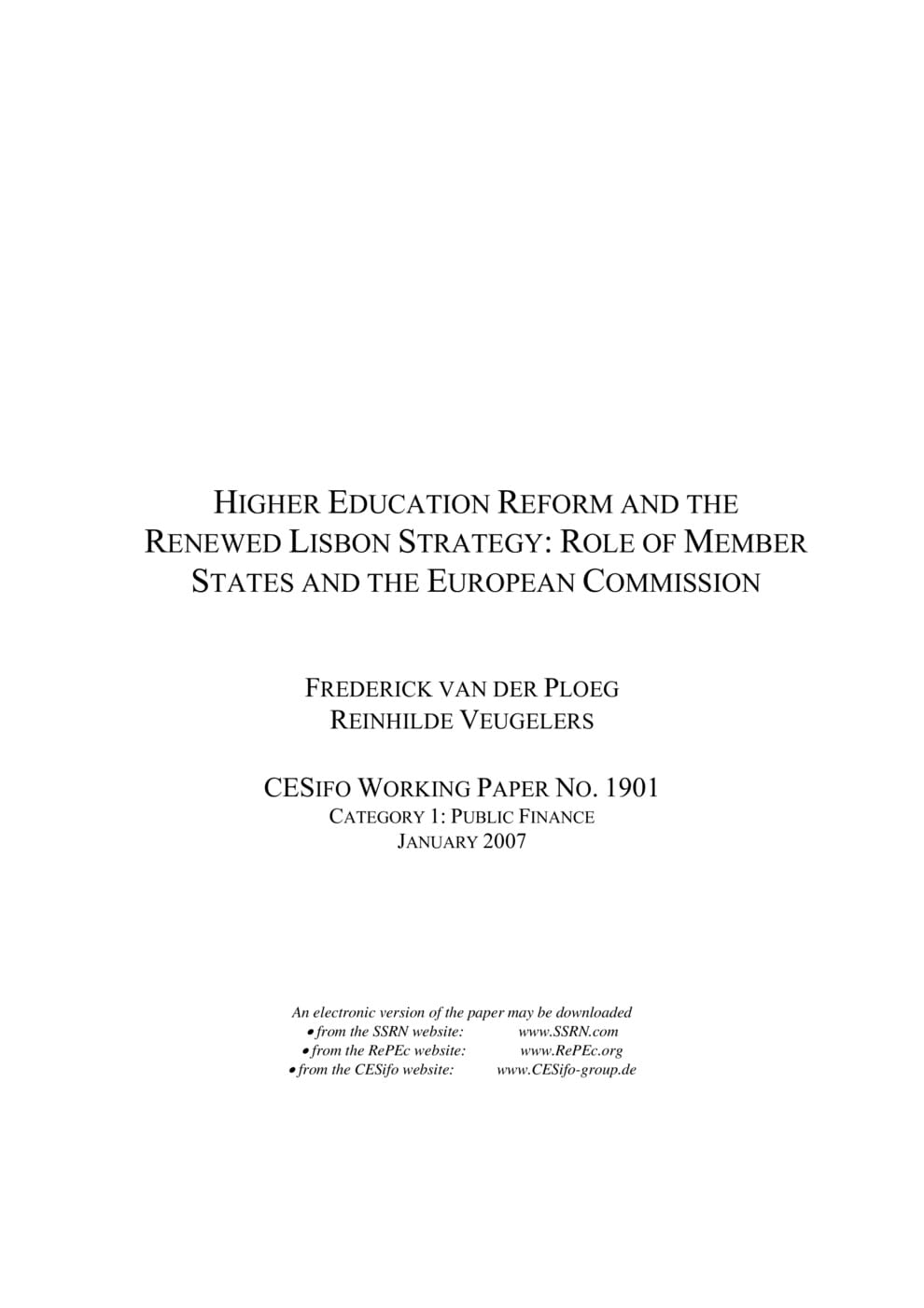Higher Education Reform and the Renewed Lisbon Strategy: Role of Member States and the European Commission
CESifo, Munich, 2007
CESifo Working Paper No. 1901

This paper discusses rising enrolment rates, access, governance, underperformance in research and teaching, lack of internationalisation, private returns to education and the funding problems of European universities. Our proposals for reform are based on more autonomy for universities, higher tuition fees, more private funding, introduction of income-contingent loans, better governance, more competition and internationalisation. Apart from providing mutual policy learning opportunities, cross recognition of qualifications and furthering the goals of the Bologna reforms, the EU should promote mobility of students, researchers and teachers and open up national funding schemes. The EU should take more initiatives to fund research through the Structural Funds and the funds for ‘Competitiveness for Growth and Development’, invest in EU flagships and facilitate global cooperation. The EIB can be a crucial driver for Higher Education in Europe by making income-contingent loans available.